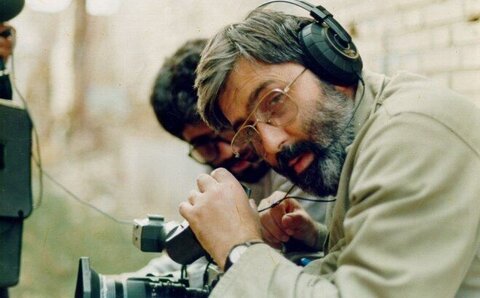Iran (IMNA) - One of the prominent figures who contributed significantly to this genre was Martyr Morteza Avini. Known for his groundbreaking documentary "Ravayat-e Fath" (Narration of Victory), Avini became an influential filmmaker and journalist, capturing the spirit of resistance and sacrifice during the war. This article aims to shed light on Martyr Morteza Avini's life, his contributions to Iranian cinema, and the impact of his documentary.
Early Life and Background
Martyr Morteza Avini was born in the city of Rey in 1947. He grew up in a family deeply rooted in cultural and revolutionary activities. Avini's passion for filmmaking and storytelling developed at an early age, leading him to study cinema at the University of Tehran. He had a keen interest in documenting the realities of society and the struggles of the oppressed.
The Birth of Sacred Defense Cinema: During the Iran-Iraq war (1980-1988), Martyr Morteza Avini recognized the significance of documenting the war's events and preserving the memories of those who fought on the front lines. He played a crucial role in establishing what would later be known as Sacred Defense cinema, a genre that focused on portraying the bravery and sacrifices of Iranian soldiers and civilians during the war.
Ravayat-e Fath: A Groundbreaking Documentary: Among Avini's notable works, "Ravayat-e Fath" stands out as a groundbreaking documentary that captured the essence of the Sacred Defense era. The documentary, released in 1984, depicted the stories of ordinary people who became heroes on the battlefield. Avini's masterful storytelling combined with powerful visuals and emotional narratives created a lasting impact on the viewers.
The Impact of Avini's Work: Martyr Morteza Avini's films, including "Ravayat-e Fath," had a profound influence on Iranian society and the way the war was remembered. His documentaries not only highlighted the heroism of soldiers but also shed light on the resilience and sacrifices made by civilians. Avini's work played a significant role in shaping the collective memory of the war, fostering national unity, and inspiring future generations.
Legacy and Martyrdom: Tragically, Martyr Morteza Avini lost his life in 1993 while making a documentary in southwestern Iran, Fakke . His untimely death was a great loss to Iranian cinema and journalism. However, his legacy lives on through his films and writings, which continue to inspire and educate people about the importance of sacrifice, patriotism, and the preservation of national identity.
Martyr Morteza Avini played a pioneering role in the development of Iran's Sacred Defense cinema. Through his documentary "Ravayat-e Fath" and other works, he immortalized the spirit of resistance and sacrifice during the Iran-Iraq war. Avini's contribution to Iranian cinema not only documented historical events but also shaped the national narrative and inspired generations to come. His legacy stands as a testament to the power of cinema in preserving the memories of the past and honoring the sacrifices made by those who fought for their country.


Your Comment